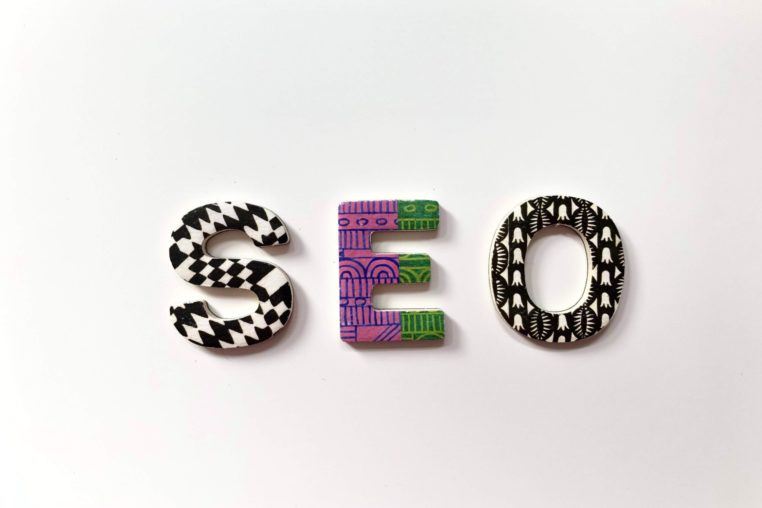
Public Relations IS SEO | The Importance of Mentions
The idea of public relations being used as a search engine optimization tool isn’t new to any seasoned SEO professional. Since the early 2000s, SEOs have distributed press releases through services such as PR Web and PR Wire to garnish valuable backlinks. Once upon a time, this was an effective strategy; a press release could be sent out to hundreds of press release sites, all linking back to your website. Backlinks have historically been an important component to improve rankings in Google for competitive search terms.
However, Google has become much more intelligent in the past 20 years. Today, Google simply ignores these types of links. Here’s what John Mueller, Google’s Senior Webmaster Trends Analyst, had to say about it in a Webmaster Central Office Hang Out in 2018:
“So we try to ignore links from things like press releases because we know in general companies put the press releases out themselves. So any links in there are essentially placed by themselves.”
This makes sense, of course. Why would Google want to count links placed by the website owner? For that matter, why did Google ever count those links? To answer that question, we’ll need to travel back in time. Let’s go back to the beginning of 2012, before Google released their Penguin algorithm update.
How Google Ranked Websites in 2012 (and before)
Since the dawn of Google, their search engine had one feature that allowed it to provide better search results than their competitors: their link index. Google was one of the first search engines to index a large portion of the pages online, including all the links on each page. They figured if a page has a lot of links pointing to it, it must be authoritative and therefore should be ranked high in search results.
This worked pretty well for a while, as it was the only effective method of determining the quality of similar pages. However, it didn’t take long for people to figure out how to game the system; suddenly, the Search Engine Optimization industry was born. SEOs started publishing pages anywhere they could, by the thousands, all containing links pointing back to the websites they were trying to rank.
How Google is Getting Smarter
Since then, Google has become much smarter. Natural language processing algorithms such as “BERT” can now understand the words on a page with incredible accuracy. Google still has a long way to go before it can understand language as well as humans, but as it gets closer, one question becomes more and more relevant: “How does Google WANT to rank web pages?”
Can We Still Trick Google into Ranking Out Site Higher?
Now that Google can recognize the difference between a link made for SEO purposes and a legitimate endorsement of a website, it has become very hard to trick Google. While there are still SEOs out there building artificial links for their clients, they’re more likely to get their client penalized than help them rank. Savvy SEOs have given up on these link schemes and are moving on to more legitimate forms of outreach, such as public relations.
How Google Ranks Websites Today
We’ve established Google is no longer fooled by links made for SEO purposes, so how does Google decide which sites to rank at the top of their search results? To answer that question, we’ll need to talk about “mentions”.
Inbound Links vs. Mentions
We’ve talked about unnatural links; however, many links are in fact legitimate endorsements. If a trusted website in your industry is recommending a product or service on your website by linking to it, Google doesn’t want to ignore that link; it’s a signal your site is authoritative. However, what if the website didn’t provide a link? What if they merely mentioned your company in a positive light? Wouldn’t Google want to factor that in as well?
As Rand Fishkin, a well renowned SEO and founder of Moz.com, articulated so well earlier this year:
“If you want quick and easy access between web pages, a link is great. But if you’re seeking meaningful, authentic indicators of unbiased endorsement, the inferred links are vastly superior. Google today has the ability to interpret both types—inferred and direct.”
What Rand calls “inferred links” have historically been called “mentions”. Mentions are exactly what they sound like: someone mentioning your brand, company, or website. Google’s now reaching the point where they can understand context remarkably well. While Google has yet to confirm it officially, many in the SEO community assume that positive brand mentions could provide ranking benefits similar to that of inbound links – if not today, very soon.
How to Get More Online Mentions
By now you’ve probably connected the dots. If mentions are the name of the game, the role of public relations is obvious. In fact, today public relations is one of the only reliable methods of garnishing authentic positive mentions from trusted sources. The days of SEOs manually placing links to help a website rank are behind us. Today, links and mentions must be earned. What does this mean for businesses? A few things:
Well Run Businesses Rank Better
Back in 2012 it was possible – some might even say easy – to get a poorly run business to rank on page one of Google for competitive search terms. These days, as you might have noticed by seeing Google’s search results, well run businesses naturally rise to the top. Google’s algorithm has simply become much better at separating the wheat from the chaff. Linking schemes and keyword stuffing no longer work; it’s all about your actual reputation. Well run businesses get more positive reviews and mentions.
Content is Still King in SEO
Content has always been an important part of any effective SEO campaign. Articles, images, and videos are the only tools available when trying to rank for information seeking queries. However, the quality of the content has never been more important. While 10 years ago you could get away with generic content that was highly-optimized for Google. Today, Google can spot low-quality content from a mile away. Getting on page one requires the best content online for the given search query.
There’s also a stickiness factor to good content. The better your content is, the more likely it is that people will share it, link to it, and talk about it online (mentions). The more mentions your content receives, the better it will rank in Google – and on and on.
Businesses Need an SEO Agency that Understands Public Relations
Hopefully by now you’re convinced public relations plays an important role in SEO. If no one is talking about your company, it’s unlikely you’ll rank on page one for competitive search terms.
Conversely, a well run business with the best content of its kind and a killer public relations strategy will reliably shoot up to the top of Google’s search results. That’s not to say that technical SEO is unimportant – there are hundreds, if not thousands of factors that contribute to a website’s rankings – but for competitive search terms, getting these 3 things right is 90% of the battle.
How Geary Company Advertising Can Help
Here at the Geary Company, we understand the importance of a personalized, top-quality, integrated approach to marketing. We don’t use templated marketing strategies. Instead, we take the time to fully understand your business and your goals before putting together a custom plan. We have experts in every advertising medium – from traditional to digital, paid advertising to content marketing – we believe an integrated approach is always best. And we will spend the extra hours getting every piece of the campaign to where it needs to be. If it isn’t the best of its kind, it’s not finished.
If you’re interested, we’d love to put together a free audit of your company and online presence. Let us show you where you might be missing out. Even if you don’t hire us, it will be a helpful resource for you; it’s our gift to you. Contact us today to see how we can help you grow.




